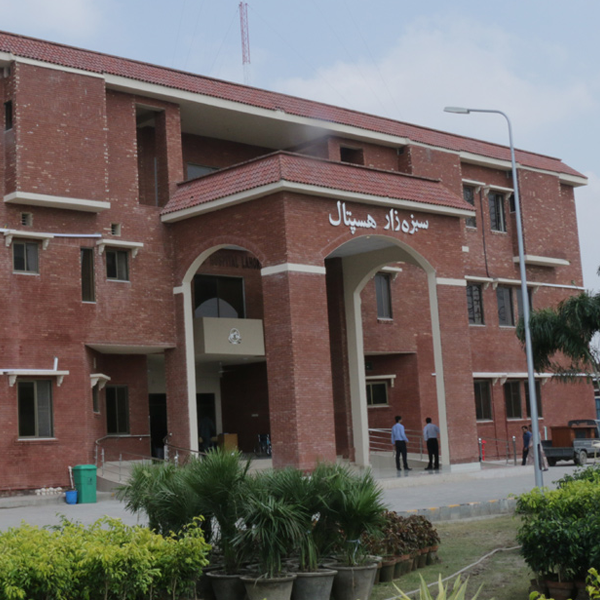TEHSIL HEADQUARTER HOSPITAL SABZAZAR, LAHORE
THQ, Sabzazar is a 100-bed multidisciplinary secondary care hospital equipped with modern amenities and experienced and well-trained healthcare staff. It has dedicated inpatient, outpatient, Emergency, and Day Care services with Laboratory and Radiology services. The campus is run on a framework of local hierarchy with head office support and monitoring. It also houses a central lab.

Services offered:
- Accident & Emergency Room
- Anesthesia Department
- Blood Bank
- Club foot clinic
- Counseling Unit
- Daycare Services
- Diabetes Clinic
- EPI
- Family Medicine
- Family Planning
- Gastroenterology Clinic
- General Medicine
- General Surgery
- Infection Control Department
- Laboratory
- Malnutrition clinic for Peads
- Neonatology
- Nursing Department
- Nutritional Clinic & Services
- Obstetrics & Gynecology
- Orthopedic & Trauma Surgery
- Paediatric Medicine
- Pharmacy Department
- Physiotherapy for Antenatal Care (to reduce C-Section and encourage to tolerance of labor pain)
- Radiology
- Safe Circumcision clinic (encouraging family for hospital environment circumcision)
Operational hours:
- Elective Outpatient Services: 08:30 am–04:30 pm (Sunday Closed)
- Emergency & Inpatient: 24/7
Address
G-Block, Near Liaquat Chowk, Sabzazar Lahore, Pakistan.
Contact
+92 42 3890 0411-20
Number of beds:
100



